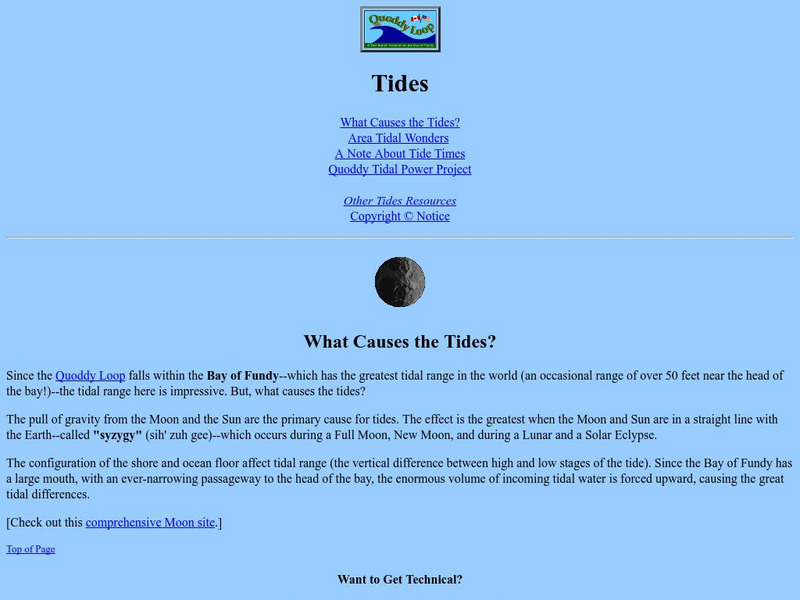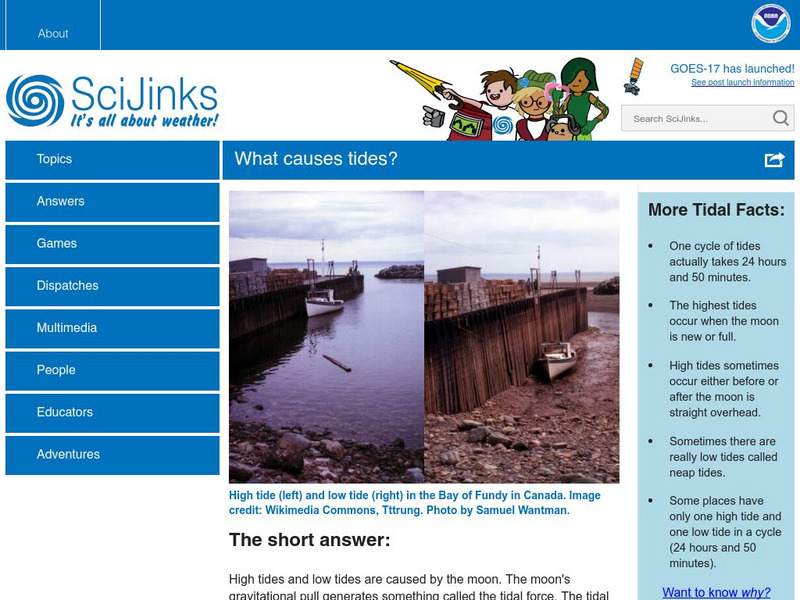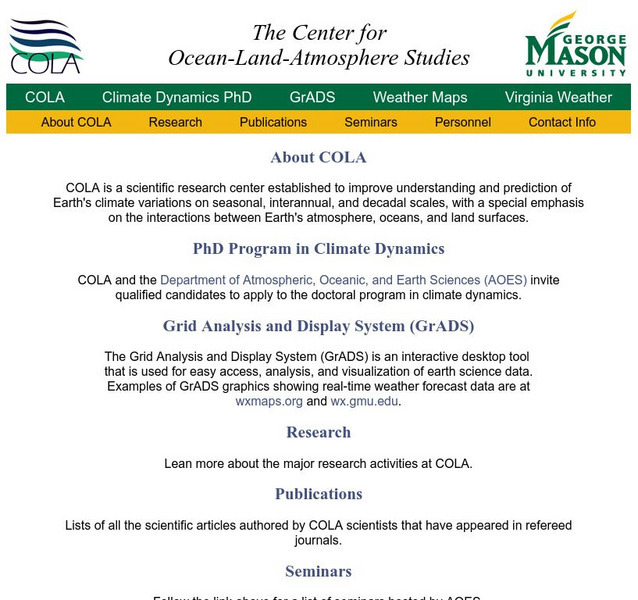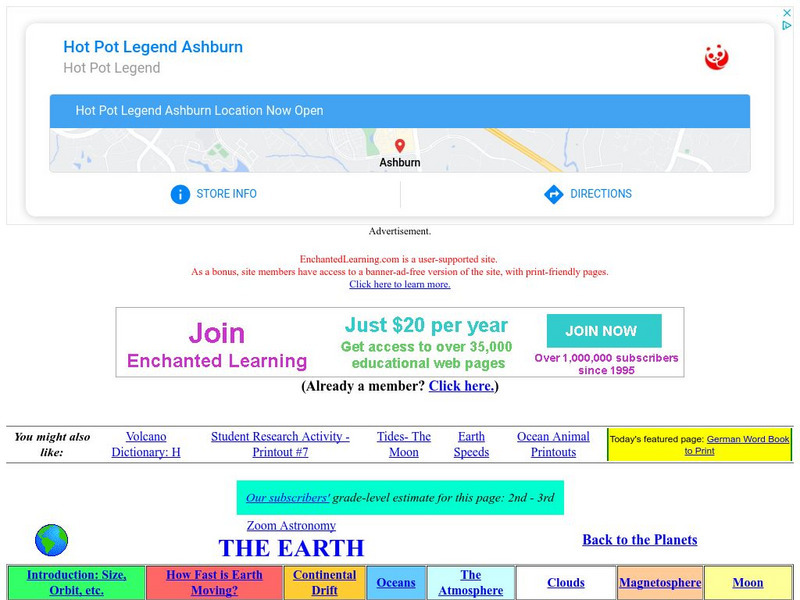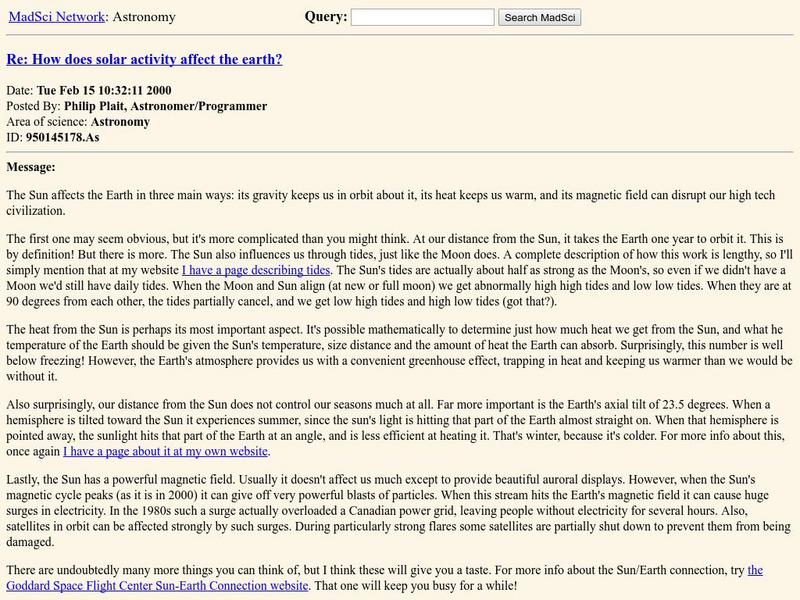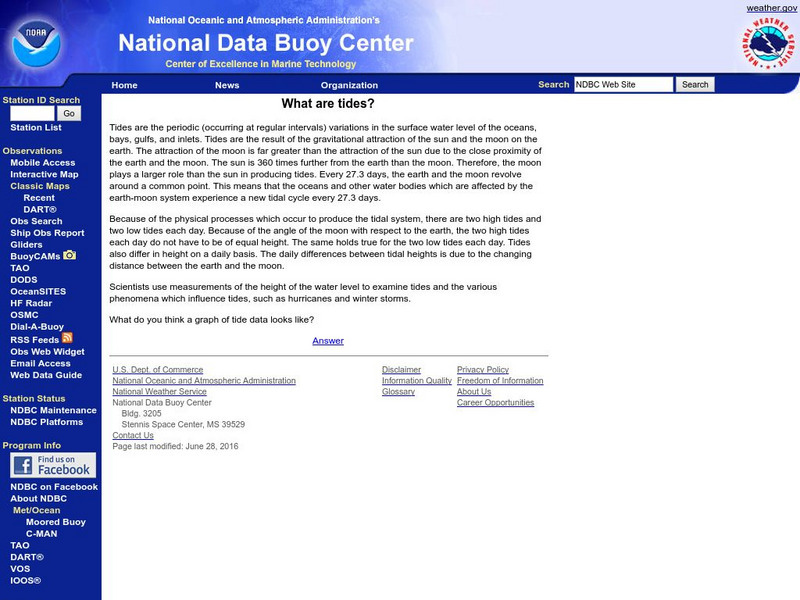TED Talks
Ted: Ted Ed: How Tsunamis Work
The immense swell of a tsunami can grow up to 100 feet, hitting speeds over 500 mph- a treacherous combination for anyone or anything in its path. Alex Gendler details the causes of these towering terrors and explains how scientists are...
Other
Univ. Of South Carolina: Www Tide and Current Prediction
The Univeristy of South Carolina provides predictions for tides and currents from all coasts of the U.S. Also provides useful related links.
Other
Quoddy Loop: Tides
This resource gives an in-depth description of the Quoddy Loop of Islands within the Bay of Fundy. This area has the greatest tidal range in the world. Learn what causes these massive tides.
Scholastic
Scholastic: Study Jams! Science: Weather and Climate: Tides
Is it time for high tide? Make studying the tides fun with this video. Understand the impact of gravity on the water surfaces of the earth. Take the test to see how well the information is understood.
NASA
Scijinks: Tides and Oceans
Discover some interesting facts about tides and oceans and activities which correspond.
NASA
Sci Jinks: Tidal Curiosities
Understand where tides come from. This brief article illustrates and describes the science behind high and low tides as well as why some places experience only one high and low in a twenty-four hour period.
NASA
Sci Jinks: What Causes Tides?
How do ocean tides work? What causes them? Find out with this resource.
Institute of Global Environment and Society
Iges: Homepage
This site allows you to access a great deal of information about the link between ocean and climate. Latest El Nino/La Nina predictions and maps are one of many data sets featured.
Enchanted Learning
Enchanted Learning: Zoom School: Oceans
Find out why the oceans are blue and what causes waves by clicking here. There is a table of information about the four oceans as well as interesting facts on waves, salinity, and tides.
MadSci Network
Mad Scientist: Why High Tide Away From the Moon or Sun?
An excellent and thorough answer to the often asked question about high tide "bulges" on the side of Earth facing away from the Moon or Sun.
Missouri Botanical Garden
Missouri Botanical Garden: Waves
This site from the Missouri Botanical Garden provides a brief description of how waves form and move. Click on the "waves" link in the toolbar to the left. This site is basic, but very informative. Includes colorful animations...
NOAA
Noaa: National Data Buoy Center: What Are Tides?
A very general introduction to tides and their cycles, with one link to a graph of tide data.




